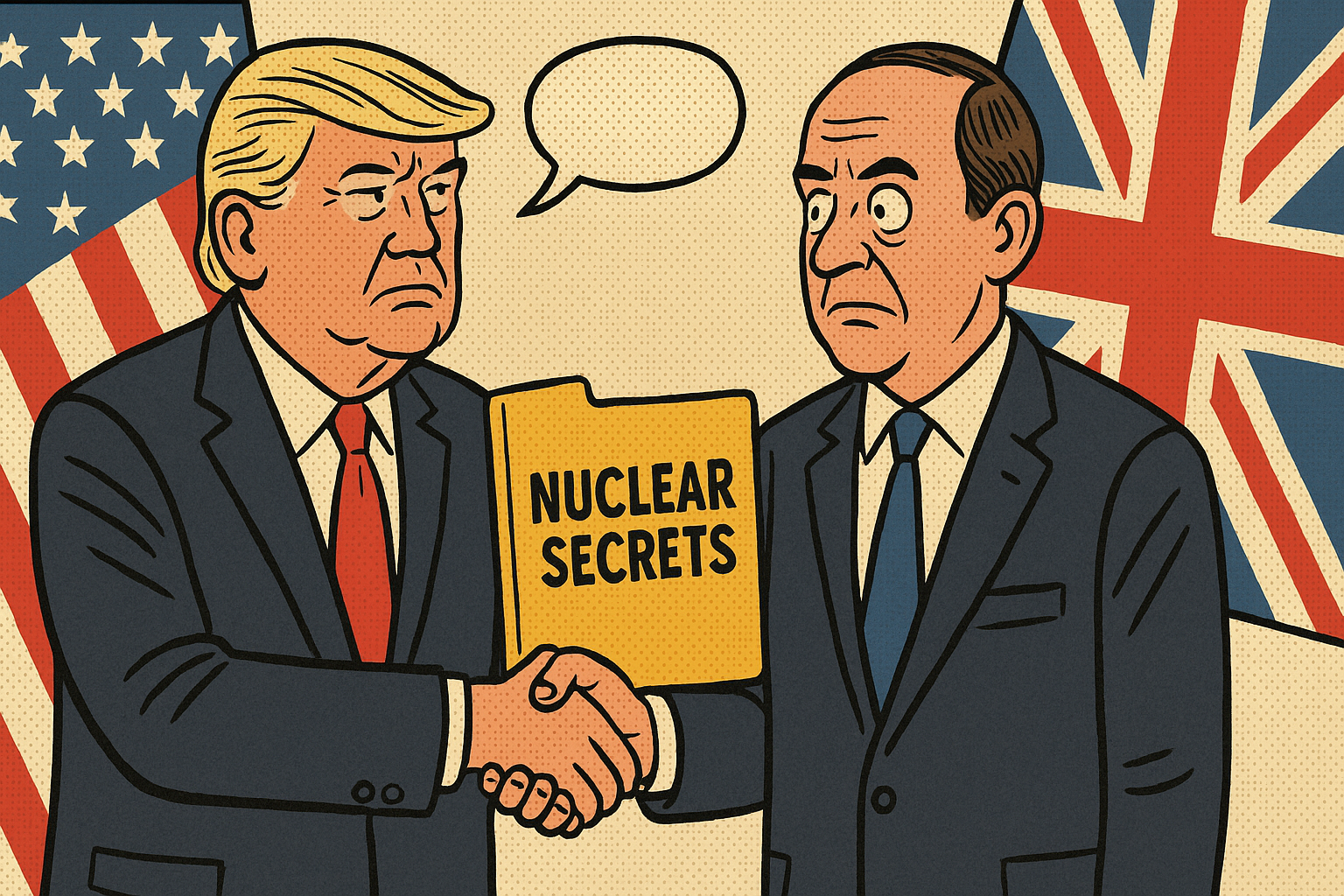Washington, D.C. – In an unprecedented leap forward for international diplomacy, the United States and the United Kingdom have signed a groundbreaking agreement to jointly share all current and future nuclear secrets, as well as any awkward silences that may arise during high-level collaborations. Experts are hailing this as a new era of transparency and uneasy pauses between two of the world’s oldest allies.
The pact, heralded by officials as the “Transatlantic Treaty of Uncomfortable Transparency,” was inked during a meticulously choreographed ceremony in Washington attended by top diplomats, military officials, and an unusually long moment of silence that no one seemed quite sure how to fill. According to sources close to the discussions, both nations are committed to maintaining deep eye contact in shared nuclear briefings, while offering comforting nods during the inevitable silent lulls.
Dr. Esther Seatfill, a leading analyst at the Institute for Transnational Quirks, explained, “This partnership is not just about mutual deterrence; it’s about mutually acknowledging the times we run out of things to say after discussing thermonuclear deployment strategies. We are witnessing the dawn of an era where allies acknowledge not just their strengths, but their shared social inadequacies.”
While the nuclear aspect of the treaty is poised to bolster strategic impotence, the addition of structured awkward moments has raised questions among international observers. “Some might see these extended pauses as an opportunity to address meaningful topics like weather or lunch options mid-discussion,” acknowledged Sir Reginald Unucker, British Ambassador of Unease. “However, our data suggests these awkward silences can forge stronger bonds than shared intelligence alone.”
Critics of the deal have wasted no time in pointing out how similar treaties in the past have led to unintended consequences. A bipartisan committee on Capitol Hill highlighted the infamous “Unspoken Treaty of 1964,” which resulted in an entire G8 summit halted as leaders collectively waited for someone to cough and break the tension. Meanwhile, a recent Gallup poll indicates that 78% of citizens in both countries remain unsure who is supposed to laugh first when a silence follows a joke about nuclear annihilation.
Yet, proponents argue the ability to navigate these silences shows resilience. They point to documented historical instances where extended pauses led to breakthroughs, such as when President Reagan and Prime Minister Thatcher reportedly settled a crucial economic negotiation through a mutual and silent recognition of their absolute inability to understand quantum physics.
The announcement concludes with an invitation for other nations to join an upcoming multilateral conference on enriching cross-culturally shared awkward silences. Some speculate the first agenda item will include discussing whose turn it is to speak or perhaps deliberating the ideal duration of looking at one’s shoes without appearing rude.
In a forward-thinking reflection encapsulated in a joint press release, both governments stated their commitment to “ensuring that even in the face of global conflict or technological deficiencies, we will stand together in pregnant pauses, for there is strength in silence.”

Leave a Reply